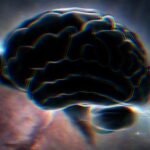A paramount question that humans ought to consider is what philosophers have labeled the “mind-body problem.” The key point here is this: are humans made of one substance or more? Are humans nothing more than physical matter or do they also incorporate an immaterial mind/soul? These distinct perspectives are known as physicalism and dualism. To answer that question carries profound implications, for if the soul/mind exists, then physicalism is certainly false. It is clear as well that if the mind exists as a disembodiable entity, then it is possible that humans can exist after the physical body dies. In this essay, I will argue that humans are not just physical matter and thus physicalism is false.
The challenge for those who hold to physicalism is to offer a coherent explanation detailing how mind and consciousness can arise from the rearrangement of carbon atoms. If physicalism is true, the humans are just complex rearranged and super-evolved bags of chemicals. This challenge becomes exponentially acute if we attempt to explain the emergence of mental states and consciousness.
Is there a way to ascertain if physicalism is false and that a soul/mind exists independently? Dr. J. P. Moreland believes that—with the use of simple logic and a few clear definitions—we can be reasonably convinced that physicalism is false. What comes from the physical, by means of the physical will be another form of physical matter. There is, however, strong evidence for the existence of the soul/mind independently of the brain/body.
The first step to show that physicalism is false is to define a few key terms to use as clarification tools to decide if the brain and the mind are the same “thing.” Within the realm of dualism, there is what is called substance dualism and property dualism. To understand these views requires the differentiation between substance and property. Property is an attribute or characteristic (squareness, redness, hardness, density). Properties tend to end in “ness” and “ity” in English. Properties are “had” by things. We can speak of the property of being blue, and then we can speak about the object holding that property, for example: “the pen is blue.”
A substance is something that has properties but nothing has it; for example, a pet has a property of being fluffy, of weighing 20 lbs, of being color brown, but nothing “has” the pet. The pet does all the “having.” Substances have properties and can gain or lose properties as well and remain the same substance. A pen can be painted green and lose the blueness property, but still be a pen (same substance).
To make our case against physicalism, we need to understand the nature of identity: Leibnitz’s law of identity posits that if we have a substance (or a property) X and another substance (or property) Y, if X is identical to Y, then whatever is true of X will be true of Y and vice-versa. For example; let X be “Neil Armstrong” and Y be “The first man to walk on the Moon.” If X is identical to Y, then Neil Armstrong is the first man to walk on the Moon. If this is true, then X and Y are the same substance. This is also true of properties. Now, if it can be proven that one thing is true of X that is not true of Y, then they are not the same substance or property. This is extremely important because now we can ask the question: is your consciousness nothing but physical properties of your brain? Are you your brain—and nothing more?
The key premise to test using the law of identity is the following: If there are true things of mental properties that are not true of physical properties, then they can’t be the same thing.
Let’s now review three arguments that show that there are some true things of mental properties that are not true of physical properties:
Argument 1: The property dualist agrees with the physicalist that we are physical substances (brain) but adds that the brain has two types of properties: physical and mental properties (and they are not the same). The brain has physical properties and mental properties. There is one possessor with two kinds of properties. Sensations are mental properties. Sensations can be perceptual sensations and non-perceptual. A sensation is a state of awareness that arrives from a sense organ (for example awareness of color, sound, smell, taste, texture). A non-perceptual sensation does not come from a sense organ (for example, fear, anger, love, anguish). A thought is a mental content that can be expressed in a whole sentence and can be true or false (for example, I can be thinking that “snow is white” but express it in French or Spanish). A belief is a mental content I take to be true (beliefs are not thoughts, for a person can hold a myriad of beliefs but not be thinking about any of them). Desires and acts of the will are also mental properties. The issue here for the physicalist is that these properties happen “inside of us” and there are properties that are true of sensations, thoughts, desires and acts of will that are not true of physical properties and vice versa; for example, thoughts don’t have size or shape. A thought can be true or false, but a feature of the brain or a group of neurons is neither true nor false. A brain state has a physical pattern of electricity, but the pattern is neither true nor false. We can think of a pink elephant and have an awareness of pink, but that awareness is not physical and we can’t find the color pink in the brain for which we experience such awareness. A sensation is pleasurable or not, but no physical property is pleasurable. There are true characteristics of our sensations that are not true of physical properties so they are not the same substance. This demonstrates that physicalism is false, and at least property dualism is true. No amount of information about our bodies can say everything there is to say about our conscious self.
Argument 2: I have the property of being possibly disembodied (the possibility that my “self” exists apart from my body) but my body doesn’t have the property of being possibly disembodied so I am not my body. By contrast, if water is H2O, is there’s anything that could possibly happen to water that couldn’t happen to H2O? No, there is nothing that wouldn’t happen to water that wouldn’t happen to H2O if they are the same thing. Even if life after death is false, surely, humans are at least possibly the kind of thing that can live after death. If that is so, then humans can’t be purely physical objects. There is something true of a human that is not true of the human body: I am possibly disembodiable. This does not prove immortality, but it illustrates that the body is not identical to the self.
Argument 3: The reality of free will. If all you are is a brain (even a conscious brain) and you believe physicalism is true, then all your behaviors are fixed by genes, brain structure, and environmental inputs. Physical objects behave according to natural laws and inputs, including the brain. But free choice requires that you are not simply your body because bodies are governed by physical laws. Free choice requires that humans be more than matter or brains. Matter, chemistry and electrical impulses can’t exercise free agency. But I submit to you that humans have significant freedom and moral responsibility and therefore true free will. In fact, our daily experience highlights the reality of true freedom of the will.
These three arguments show that there are true things about the self that are not true about a material body/brain and therefore physicalism is false.
Note
1.William Lane Craig and J. P. Moreland, ed., “The Mind-Body Problem”, The Blackwell Companion to Natural Theology (Malden: Blackwell Publishing, 2009), 229.
Chris has an M.A. in Apologetics from Biola University and writes on the topic of Apologetics and Theology in Spanish and English at Veritasfidei.org


















Facebook Comments